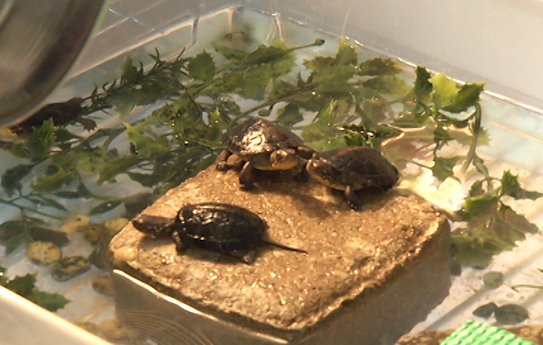OTTAWA – Using 3D-printed “sex dolls” a Carleton University researcher has answered a question biologists had been asking for years – what do northern map turtles find attractive in a female.

Biologist Gregory Bulte says he’s been studying the mating habits of the northern map turtle for about 15 years, but the turtles are skittish and hard to observe because they mate on the bottom of lakes.
He says the females can grow to twice the length of males and he wondered whether males might be attracted to larger females.
Bulte says he and his colleagues printed two 3D printed “sex dolls” of female turtles, identical in every aspect except size, and placed them a metre apart on the lake bed, with cameras rigged up to record how wild males reacted.
As predicted, Bulte says the males attempted to mate with the large model more often than the smaller one.

Get daily National news
He says that by selecting larger females, males would increase the fitness of their offspring because larger females produce larger hatchlings and he plans to continue his research using the models.
“For these turtles it would be very difficult to have somebody just sitting there taking notes underwater without scaring them away,” he said Wednesday.
Bulte said the models could also allow scientists to look at other traits involved in the turtles’ mating behaviour.
“We could look at colour … the markings, we could do that across seasons to see if it changes,” he said.
The northern map turtle is listed as a species at risk in Canada and is found in lakes and rivers in the corridor between Montreal and Windsor, Ont., Bulte said.
Bulte also said he’s going to need some help going through the data he has collected.
“Now I’m just hoping to find a really good student that is willing to watch a lot of turtle videos,” he said.







Comments